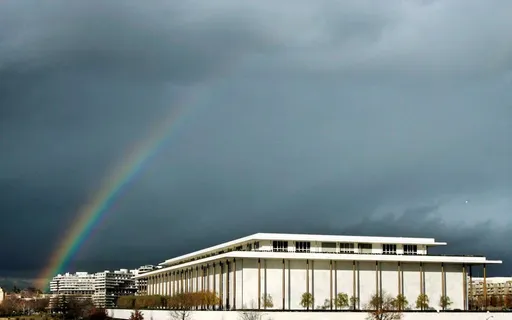A public inquiry into the devastating Grenfell Tower fire in West London, which last June claimed the lives of 72 people, started on Monday beginning with two weeks of tributes.
More than 500 survivors, grieving families, and friends, as well as North Kensington residents, are taking part in the inquiry, being held in a local hotel, with a final day of commemoration hearings.
This first phase of the inquiry will look into the facts such as how and where the fire started and spread and how the building was evacuated.
The June 14, 2017 fire was blamed on a faulty fridge, according to earlier reports. The blaze spread quickly due to the 24-story building’s cladding (covering), which was thought to have worked as an accelerator.
The final death toll of 72 included a stillborn baby, according to the British police.
TRT World's Sara Firth has more from London.
The public inquiry was ordered by Prime Minister Theresa May shortly after the inferno, and a separate police inquiry is still underway to determine the cause and the reasons for the high death toll in the disaster.
Victims at centre of inquiry
The statements starting on Monday from friends and family members are meant to keep the victims at the centre of the inquiry, which will try to determine how the disaster happened and prevent a similar tragedy happening in the future.
"When we die, we live on in the memories of those who knew and loved us," said retired judge Martin Moore-Bick, who is leading the inquiry. "It is fitting therefore that the opening hearings ... should be dedicated to the memory of those who died."
Natasha Elcock, who was rescued from the 11th floor of the block, says the tributes will be "exceptionally difficult" to hear, but she is grateful the judge permitted them.
Speaking to the BBC, Elcock says that she is "immensely proud" of the survivors because through all of their grief and sorrow "they want to do their relatives proud. They want to ensure that their memory is brought to this inquiry, and I think it's exceptionally important that it starts with this."
Survivors and families struggle during hearings
Survivors and families of the victims of London's Grenfell Tower fire are struggling with their emotions as a public inquiry hears individual tributes to the 72 people who died in the blaze last year.
Emma Kennedy, a National Health Service outreach manager who was at the hearing on Tuesday, says people fled the room in tears after footage of the burning high-rise was shown without prior warning. The video showed people at the windows of the burning building.
Kennedy says the sessions are proving to be "very heavy, emotionally. It's like being at a funeral for multiple people for six hours."
Counsellors are standing around the perimeter of the hearing room and teams are providing massages and breathing exercises to reduce anxiety.
Who is to blame?
The inquiry will look at causes of the blaze, the response of local authorities and the country's high-rise building regulations. But some survivors are critical because it won't investigate wider issues around social housing that many residents had wanted to include.
Many residents accuse officials in Kensington and Chelsea, one of London's richest boroughs, of ignoring their safety concerns raised months before the fire because the publicly owned tower was home to a largely immigrant and working-class population, raising questions about the rich-poor divide in Britian.
Police say they are considering individual or corporate manslaughter charges in the blaze, but no one has yet been charged.
The engineer examining building codes after the Grenfell tower have called for a wholesale change in fire safety regulations.
Judith Hackitt says a new regulatory framework is needed to strengthen the system, though she stopped short of calling for a ban on flammable cladding that is believed to have contributed to the blaze. Her report will be released on Thursday.
She says in an interview with the BBC, "this is a broken system that needs to be fixed."
























